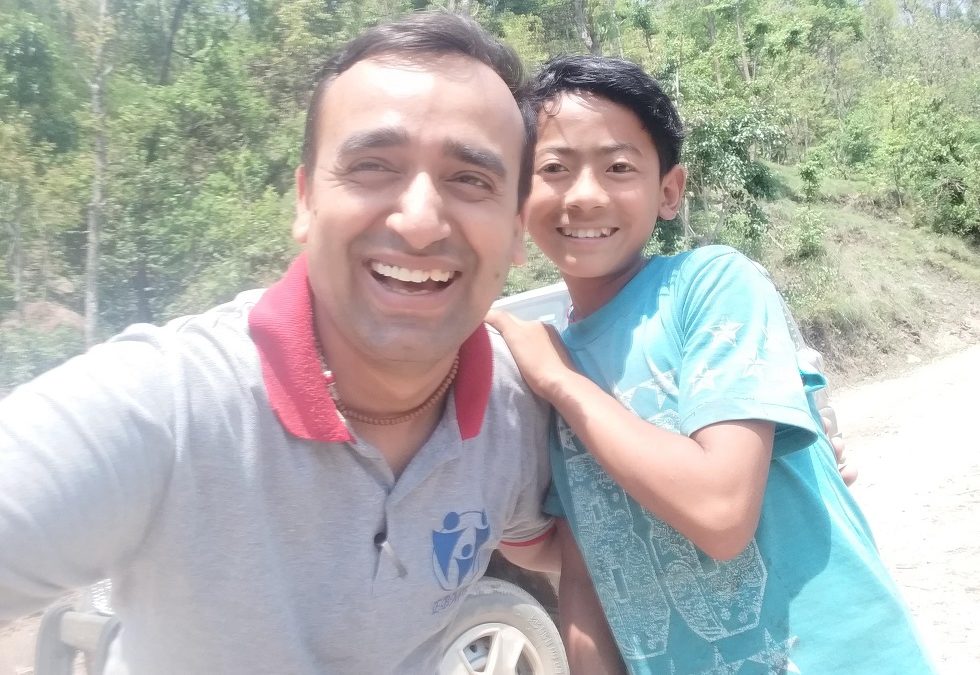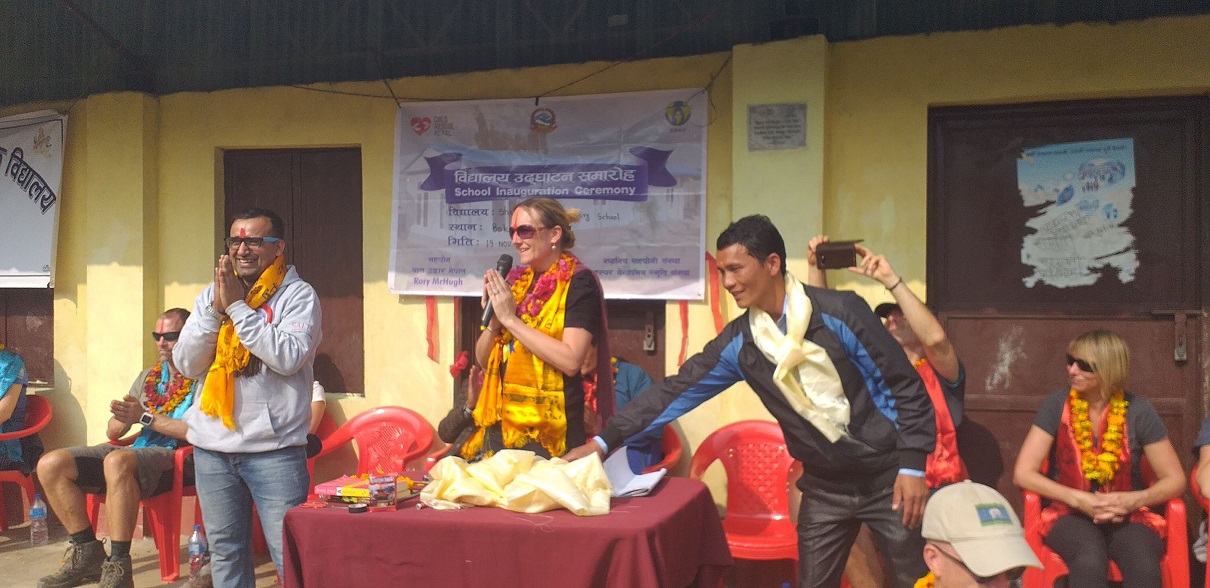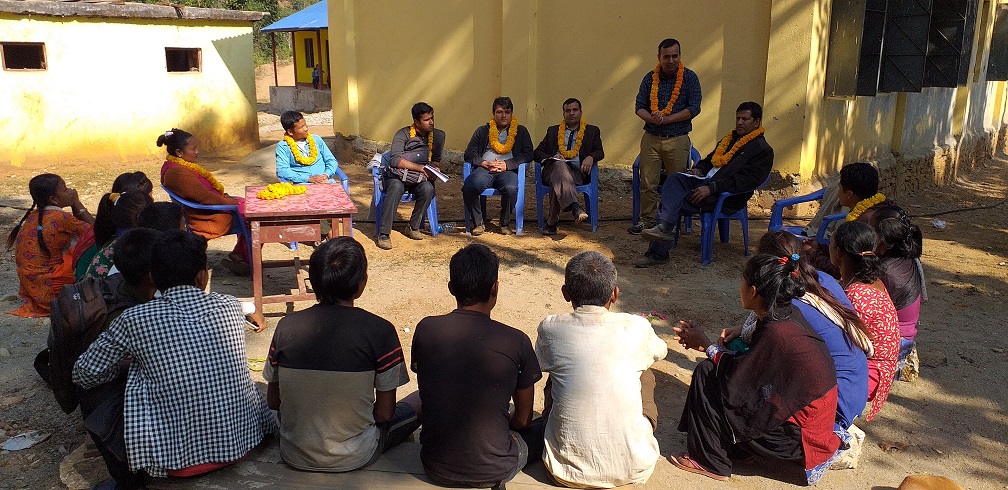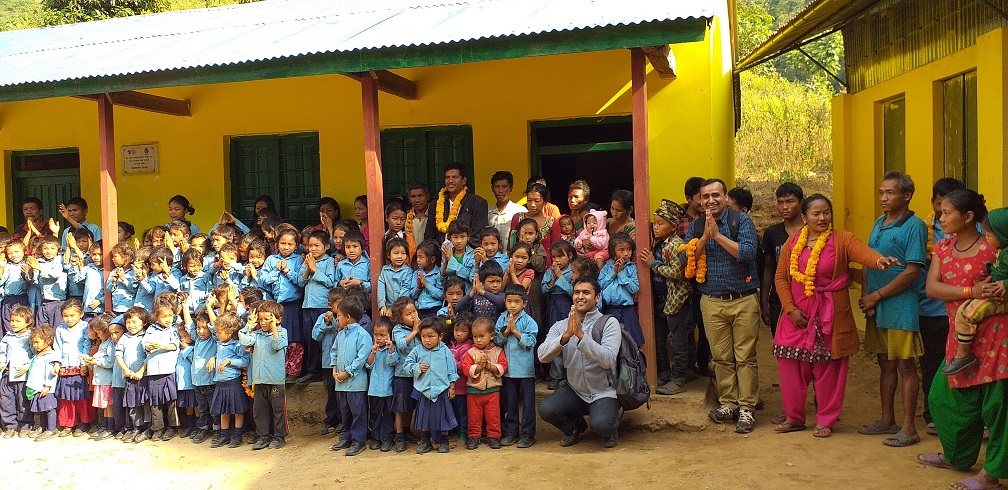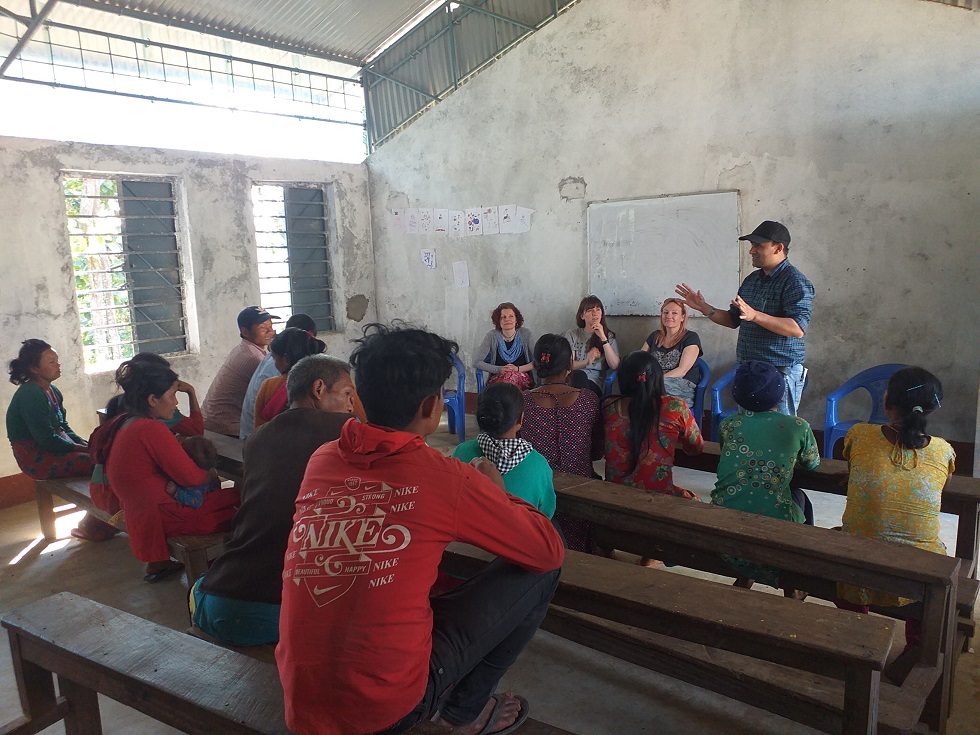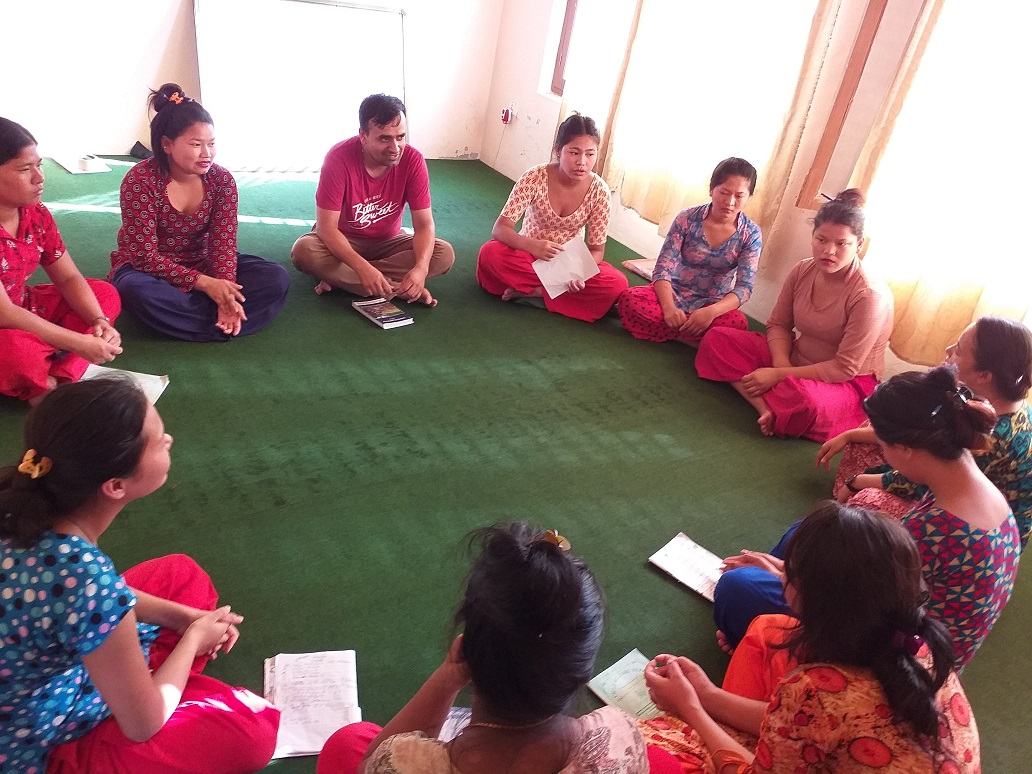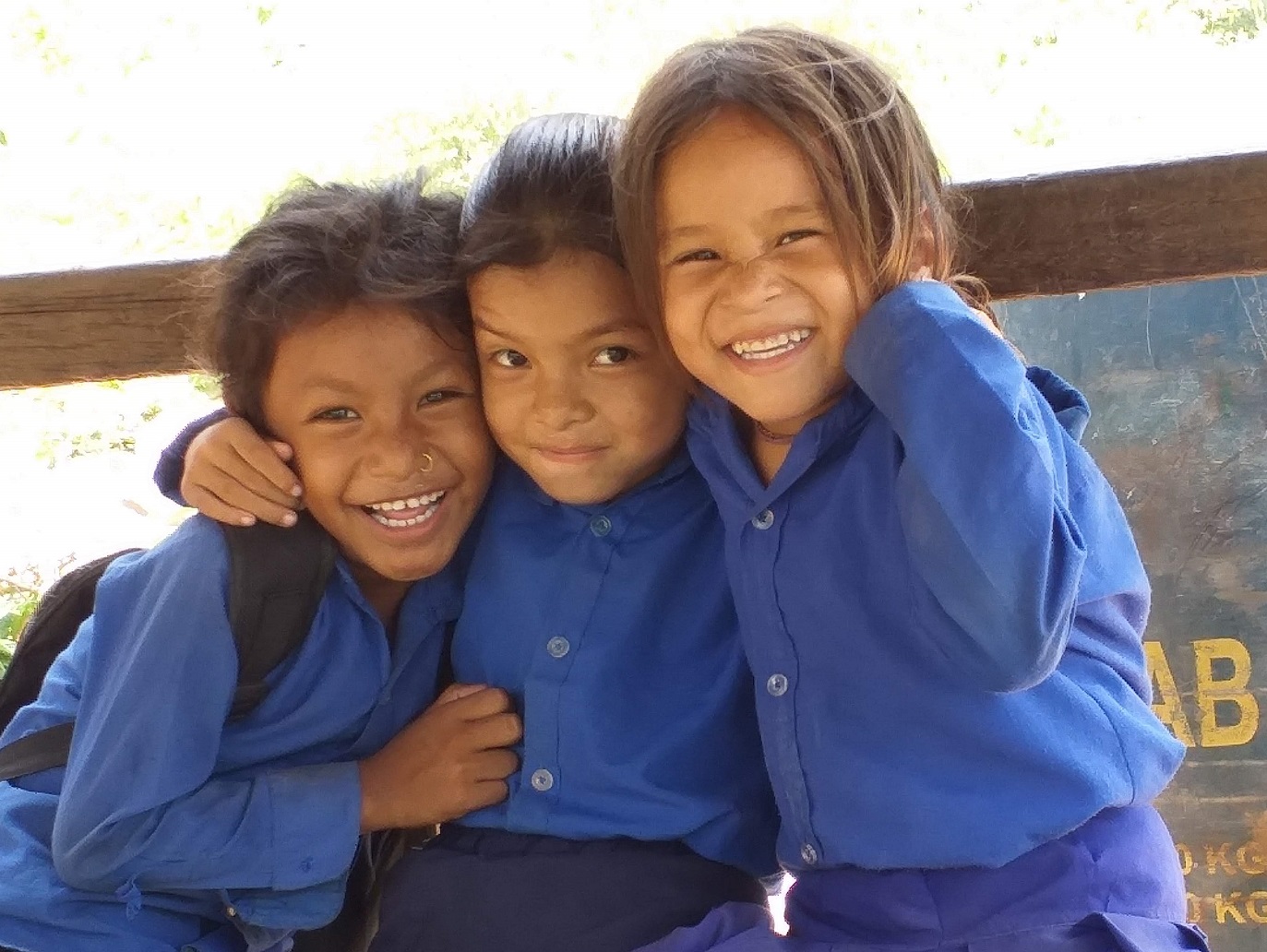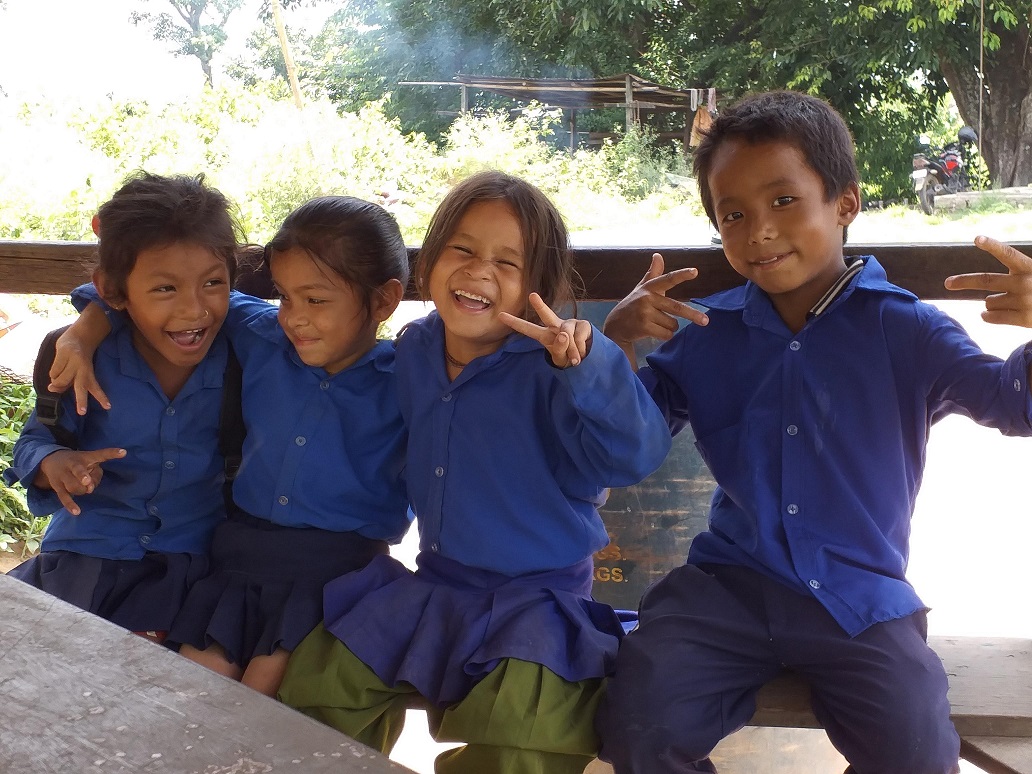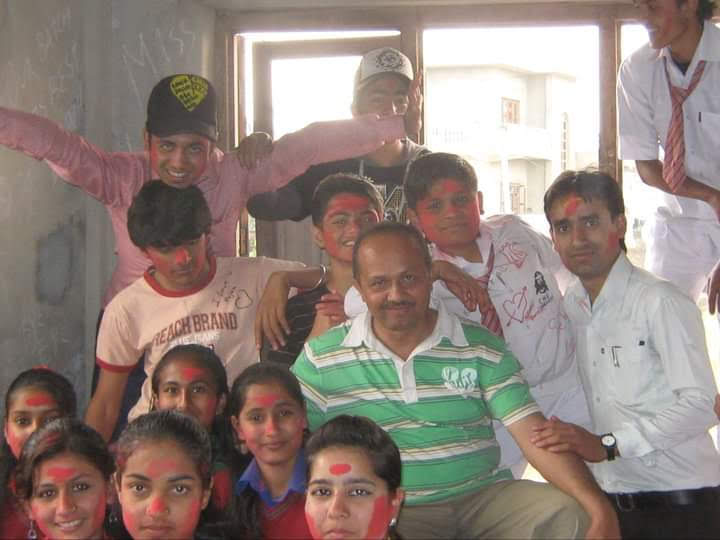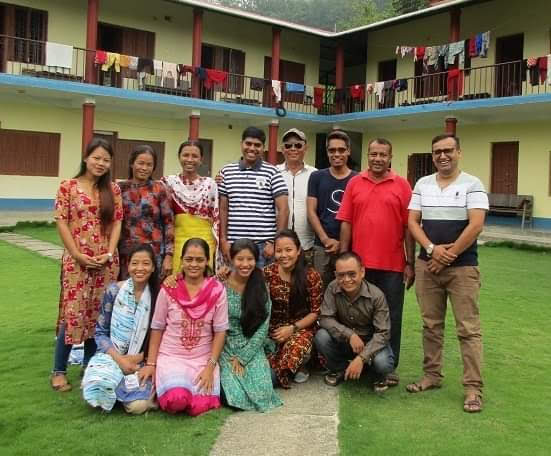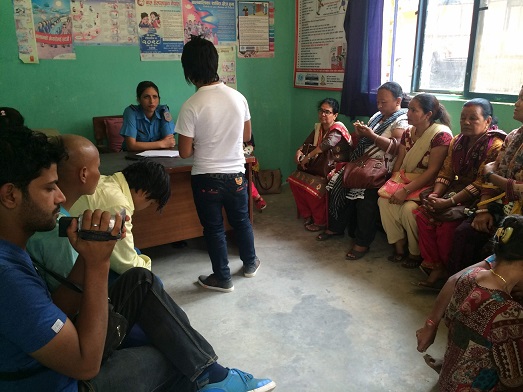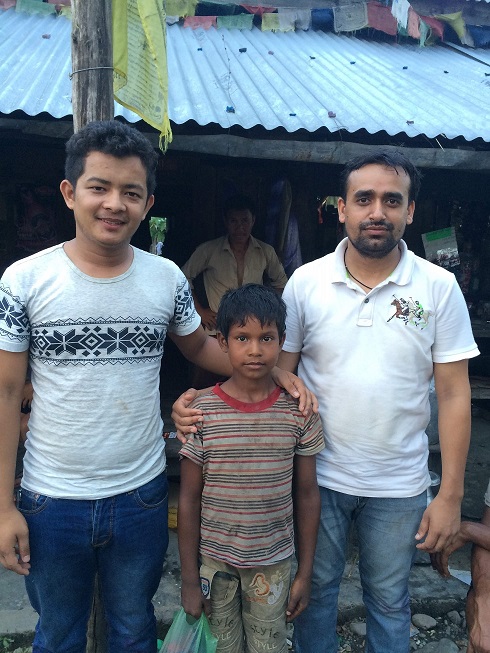(Original English text written by Kedar below Spanish translation)
Educanepal está rodeada de un equipo de trabajadores locales entregados a la labor diaria. Me pareció interesante que conocieran a algunos de ellos hablando en primera persona. Comenzamos con Kedar, nuestro director de programas.
“Namaste a todos desde mi corazón.
Nací el 7 de julio de 1986 en Kavrepalnchok, un distrito remoto de Nepal. Comencé a ir al colegio con seis años, teniendo que caminar una hora subiendo y bajando laderas para llegar. Antes de ir al colegio iba a cortar hierba para el ganado con mi tío y mi hermana mayor. Después del colegio, de cuatro a siete, debía cuidar del ganado, a lo cual debía dedicarle la mayor parte del día también los fines de semana y durante las vacaciones escolares.
Mi casa estaba situada en una zona montañosa sin acceso a carretera, electricidad, medios de comunicación o cualquier otro tipo de infraestructura. Cuando tenía nueve años vi por primera vez una motocicleta. Había dos hombre montados en ella y le pregunté a mi padre si los dos conducían, a lo cual me respondió que uno era el conductor y el otro un pasajero.
Fui afortunado de que mi padre trabajara como funcionario en las oficinas de desarrollo del distrito e hiciera un esfuerzo por escolarizarnos a mí y mis hermanos. La mayoría de mis amigos en mi aldea no iban al colegio, sus familias dependían exclusivamente de la tierra y el ganado y pasaban todo el día ayudando a sus padres en los campos.
Con once años mi familia emigró a Rautahat, una zona cercana a la frontera con India, donde cursé la educación secundaria y me gradué como universitario. Comencé mi labor como docente en el 2009 en un colegio privado como maestro de primaria, donde me di cuenta de lo importante que es la coordinación con alumnos, profesores y padres para mejorar la calidad educativa. Eventualmente me nombraron coordinador de secundaria y dediqué enormes esfuerzos a motivar a profesores y alumnos para mejorar la calidad educativa.
Yo era consciente de que la realidad en los colegios comunitarios del gobierno era muy distinta que la de los privados. Mucho absentismo de profesores, falta de recursos escolares y formación pedagógica, desinterés por parte de padres más preocupados por echarse algo a la boca cada día y poco interés por parte de las autoridades. Ante esta situación sentí la motivación de contribuir a desarrollar las escuelas comunitarias y en el 2013 comenzó mi andadura en el sector de las ONG de desarrollo local. Trabajé principalmente en el área educativa, pero también en proyectos de empoderamiento de mujeres, prevención de tráfico infantil y generación de recursos.
Hace dos años que trabajo con Educanepal a través de su contraparte nepalí (CWN) y desde un principio me impresionó la metodología de trabajo, la organización y el minucioso proceso de selección de los beneficiaros de nuestros proyectos. Nunca antes había experimentado un nivel tan elevado de sistematización del trabajo y un ambiente donde todos cuentan, a todos se escucha y las decisiones se toman por consenso entre todo el personal. Debo agradecer a José Díaz, no solo por lo que he aprendido a nivel profesional, sino también a nivel personal. De toda nuestra labor, destacaría la gestión de la casa de acogida, donde todas las niñas recogidas viven en armonía, pudiendo expresarse, compartir sentimientos y donde reina el respeto y cariño de unos hacia otros como una familia.
Para terminar quiero agradecer a Educanepal y a todo el equipo de trabajo en Nepal (CWN) por todo su apoyo y por poder disfrutar de una labor que ha llenado mi vida y de la que aprendo a diario.”
(original writing)
Namaste to the readers from core of my heart. Today I am expressing about oneself. And I think this is one of the hardest moments to describe own self. I were born in 1986 July 7 in one of the remote districts named Kavrepalanchok of Nepal. I started my school in the age of 6 in a community school. School was about an hour far from the house crossing ups and down. When I were in grade one, I had to cut grass to feed oxen with my uncle and elder sister before go to school. After finishing my school in around 4 pm, I had to look after cattle until the evening each day. And during the vacation and weekends, I had to look after cattle whole day. My house was in a hilly area and there was no any access of road, electricity, means of communication and other infrastructures. One interesting fact for me was I had seen a motorbike for the first time when I was 9 years old. There were two people riding motorbike and I asked to my father that – dad does the bike have two drivers? He replied with smile, no, my son – ‘One man sitting in front rides the bike and back sitter is passenger.’
Luckily, I were a son of government employer who worked in village development office (Nepal Government’s lowest governing). That’s why our family was loyal to send their kids to school. However, we had to finish lots of house hold cores before going to school every day. Most of my peer friends didn’t join school and remain busy to look after of cattle in their home and around.
One day, my family migrated to Terai region when I were 10 years. I finished my secondary education from there and joined university in 2006. I started my teaching career in 2009 when I finished my graduation. I feel good to remain around the children. So, I joined a private school as a primary teacher. There was a significant contribution to upgrade the school from Lower Secondary to Secondary School during my tenure. I believe that there must be significant coordination between parents, teachers, and students for quality education. So, my school had given responsibility of secondary coordinator. During my tenure, I tried to motivate colleague teachers, students in classroom and outside classroom, and used to call parents according to needs to improve student’s learning. I taught my students for 5 years in the school. I were searching a wide horizon to share my experience which might be helpful to improve quality of education in community schools.
In case of Nepal, people believe that the community schools are not committed to provide quality education. They follow traditional way of teaching rather than following new technology and method of teaching. It needs to update oneself and work hard. All the teachers shouldn’t be kept in the same basket because some teachers and some schools are trying to create good environment to provide quality education to their children. However, most of the schools in remote areas are suffering from absenteeism of teachers, lack of proper learning materials, lack of enough number of trained teachers, lack of attention from school management committee and weak in encouragement/monitoring from concerned authorities.
I wanted to contribute in promoting community schools, children, parents, and teachers. I got a chance to join Child Welfare Nepal/Educanepal in 2013 for the first time through the recruitment process as a successful candidate. It was a very interesting job for me to reach out in the remote areas and know the actual scenario of education in the district. This made me to remain in development sector to contribute in improving Nepali education system. I worked about a year associating with Child Welfare Nepal/Educanepal and joined another NGO in Women/Children Empowerment Program for two years. I had a big learning from CWN such as weekly planning/reporting, sharing ideas within the team, communication, team work during my tenure. I tried to apply these learning wherever I joined thereafter. I were indebted towards Educanepal for such a great opportunity to learn such a valuable skills in professional and personal life within short tenure about a year.
When I were in Women Skill Creation Centre (WOSCC) as a Program Coordinator, We rescued more than 50 children/adolescents from labour, boarder side and reintegrated with their respective families. My team reported one case of child trafficking to the police by victim’s family empowering/supporting them and arrested a trafficker. He was jailed for 3 years.
I joined new organization in 2016 July and worked for about 3 years as a District Program Coordinator in Esther Benjamin Memorial Foundation. The organization had rescued more than 750 children from Indian circuses. Also rescued about 50 children from hotel, metal factories, and carpet factories. Out of them, some possible children were reintegrated with their family. Others were kept in transit home, child care home for their long term care.
It is my pleasure to be associated with Educanepal/Child Welfare Nepal again in April 2019 as a Program Manager. I were impressed working with Child Welfare Nepal as it has its own way to support beneficiaries. Systematic weekly planning & reporting, sharing within the team about personal/professional misunderstandings if any, a child friendly child care home where every child enjoys, shares feelings, spread love and respect with each other. As a responsive personnel of the organization, I would like to give credits to Jose Maria Diaz and the whole team of Educanepal for such an incredible support to make the whole project successful and we all CWN team are grateful on this regards.
Thank you !!

